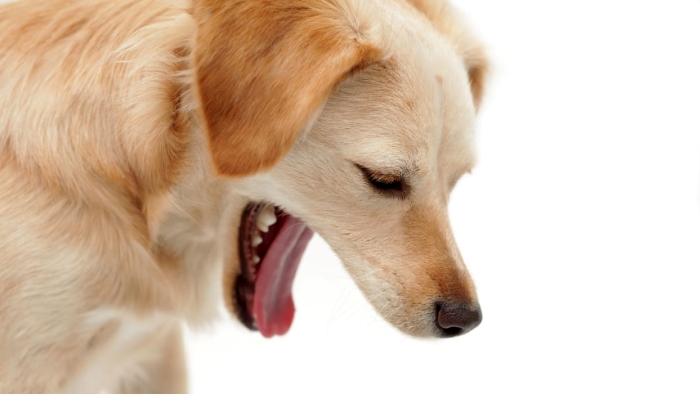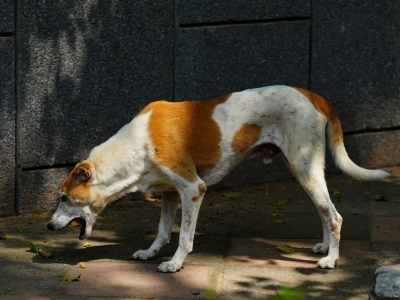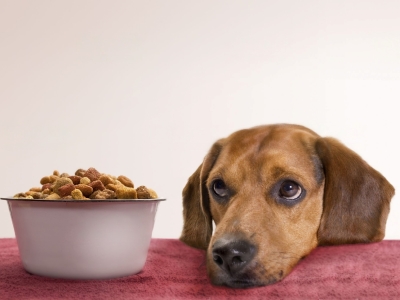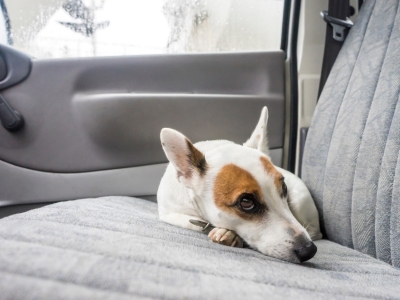Did you know? Usually, dogs take up to 4 to 8 hours to digest their food or sometimes 12 hours depending on the type of food. But it is a little gross for you and your furry friend when the digestion doesn’t go well.
This happens with every dog owner when they happily feed their dog. Just after some time of feeding their dog, when they come back and see, their dog throwing up food hours after eating.
I know it is a little unhygienic and sad to see your lovely treat become a mess on the floor. Initially, it is like a nightmare for dog owners to see something like this. But this is just regurgitating or vomiting. Let us find out what it is and why is my dog throwing up undigested food.
You Might Also Like:
What’s the Difference Between Vomiting and Regurgitation?
Maybe until now, you are thinking that regurgitating or vomiting are synonyms of each other, but they are not the same. You might be wondering why is my dog throwing up undigested food.
What Is Regurgitation?

Let me put it in the simplest way. When a dog eats food and swallows it, before that food reaches to digestion part, partially digested food comes out with the help of esophageal muscles, mouth and gravity, it is called regurgitation. In short, regurgitation happens when the food has not been digested properly but before that, it is thrown by the dog.
There are some reasons why dogs regurgitate food.
- Overeating: Like humans, when your dog eats more than their capacity. Naturally, their stomach refuses to keep extra food and ends up regurgitating food.
- Eating fast: If you are a multi-dog owner, then sometimes your dog eats so fast for fear that his food will be eaten by other dogs. Or sometimes he gets so hungry that he just attacks his food and this results in regurgitating.
- Stress or anxiety: When your pooch is under any stress or anxiety, he unintentionally regurgitates the food.
- Megaesophagus: Megaesophagus is a condition where your dog’s oesophagus dilates. In short, the part called oesophagus expands and resists the food to pass through and also enters the digestive part.
What Is Vomiting?
If your dog is throwing up food right after eating then it is not vomiting, it is regurgitation. But if you notice that your dog throwing up food hours after eating that means he is vomiting. If you know what regurgitation is then understanding vomiting will be easy for you.

When your dog eats food, first it passes through the oesophagal and enters the stomach to get fully digested. After hours, the dog throws up digested food out from the mouth with the help of the abdomen muscles, which is called vomiting.
You can also differentiate vomiting from regurgitation by the texture, smell, colour and content of partially digested food.
Reasons Why Is My Dog Throwing Up Undigested Food?
As a good dog parent, you must be noticing your dog’s behaviour on a regular basis. So you can identify if he is suffering from any kind of issue or not. Thus, when you see your dog vomiting or regurgitating, You might be wondering why your dog throwing up undigested food. There are a few reasons why this happens.
Alien Object
Normally, dogs eat everything which comes their way. Sometimes they also eat and swallow things like toys or any alien objects. This will cause them to throw up undigested food. Because either they have upset stomachs or they are not able to digest it.

What to do: If your dog is frequently ingesting a toy or anything which should not be in his stomach, then you should watch him carefully. If he is biting toys, you can buy him bigger and softer toys so that he cannot swallow them. Or else, he can face a serious medical problem.
If you see your dog has eaten something which can become a blockage of the intestine, call OVRS or your nearest veterinarian right away. To stay away from that emergency, keep your eyes on your dog and teach him.
Gastritis or Stomach Inflammation
Gastritis is Inflammation of the lining of the stomach. This can be caused by bacteria or parasites and sometimes foreign objects also. Commonly, gastritis causes sudden vomiting.
“Other clinical signs may include dehydration, lethargy or depression, increased thirst, blood in the vomit or faeces, and abdominal pain“, says Tammy Hunter, DVM from VCAHospital. In this case, blood vomit can also happen.
What to do: If you notice your dog is having this kind of symptom, you should take him to the veterinarian without waiting. In this case, only a veterinarian can cure your furry friend.
Digestion Problems
Digestive problems are very common with dogs. When your dog has an upset stomach, then their stomach automatically refuses the food and pushes it back into its mouth. Anything which is not digestive for dogs can lead to throwing food out.
What to do: Make sure that your dog is not eating something which he is not supposed to eat. If you are giving food which is pretty big for his mouth and he needs to chew it, then you should serve chopped food. You can also train your dog not to take anything other than his food in his mouth.
Serve him food with nutrition and proper quantity will make his stomach healthy.
Food Sensitivities

Sometimes dogs develop food sensitivity for some type of ingredient. If you think that you have been serving this food for a long time but nothing happened before, then why suddenly he developed food sensitivity?
But no, his stomach is sensitive to some kind of ingredients of the food, not whole food. Vomiting is a reaction to food sensitivity.
What to do: You should take two actions when you find out that your dog is throwing food out and food sensitivity can be the issue. First, stop serving the food which might be causing it. And secondly, take him to the vet, but make sure you take a sample of that food with you.
A vet will help you to confirm his food sensitivity and also a particular ingredient so that you can buy another dog food which does not contain that particular ingredient.
Natalie Stilwell, DVM from PetMD suggests that Sensitive stomach diets for dogs usually:
- Have plenty of fibre ingredients, such as psyllium or beet pulp, to help firm up loose stools
- Contains low amounts of fat, which is helpful because fat can be difficult for many dogs to digest
- Contains probiotics to promote beneficial bacteria in the gut
Motion Sickness
Dogs love car rides but unfortunately, every dog is susceptible to motion sickness. Whereas, some dogs suffer more than others’ dogs. In initial car rides when you buckle up your pooch in the backseat and when you turn around and see your dog, all seats and mattresses get covered with vomit.
“Dog motion sickness is more commonly seen in puppies and young dogs than in older dogs,” says Hilary Parker from PetsWebMD.

You can check whether your dog has motion sickness or not by experiment. When you take him on the ride just after you serve him a meal and then your dog throws up immediately after eating, it might be motion sickness.
What to do: Dogs being motion sick after eating is a common issue. You should avoid serving food or water at least 30 minutes before any car ride. Also if you are taking him on a long ride then you can take some medicines from the vet.
A Blockage
If your dog unknowingly eats something other than food. Like toys, small pieces of cloth, plastic, or garbage. This can get stuck in the way of the intestine and make a curfew for food to pass. In this case, your dog wants to throw eaten food out right after eating.
What to do: If you already have noticed that your dog eats something unusual then take your dog to the vet as soon as possible. A vet may make it pass through the intestine but if not, your dog may need to go under surgery.
FAQs
Should I give my dog water after vomiting?
If your dog vomits once, then do not serve food for the next 6 hours. Definitely, you can give them water but make sure they do not overdrink. Because over drinking can also lead to vomiting.
Can dogs drink milk?
Occasionally, in small quantities milk of cow and goat is good to treat for your dog. But access it can be the invitation for other medical problems.
Why is my dog throwing up 8 hours after eating?
If your dog throws food six to eight hours after eating, then he is definitely vomiting, not regurgitation. Vomiting 8 hours after eating could be something serious to talk about with your vet.
What do I do if my dog is regurgitating and vomiting?
Your dog might be regurgitating or vomiting. If he throws food out just after eating, then he has to regurgitate. And if he vomits after some time then probably he has a vomiting issue. I suggest you that take your dog to the vet as soon as possible.
When should you be concerned about a dog throwing up?
If your dog is frequently vomiting or vomits more than once a day then you should take him to the vet. Also if you notice any other unusual behaviour then also you should be concerned.
Final Thoughts
I hope your dog is okay now and you get the answer of why is my dog throwing up undigested food. There are many reasons why is your dog throwing up undigested food. It is your responsibility to keep your pooch in your sight and also take immediate measures. If you have any doubt about your dog that there might be any medical problem he is facing, then without waiting book a vet appointment.
Reference:
- Megaesophagus | VCA Animal Hospital. (n.d.). Vca. Retrieved January 11, 2024, from https://vcahospitals.com/know-your-pet/megaesophagus
- Pedigree. (2022, July 5). Dog vomiting causes and treatment. PEDIGREE PH. Retrieved January 11, 2024, from https://www.pedigree.com.ph/caring/my-dogs-health/dog-vomiting-causes-and-treatment
- Colgate. (2022, September 20). Causes of Dog Vomit and What They Mean. Hill’s Pet Nutrition. Retrieved January 11, 2024, from https://www.hillspet.com/dog-care/healthcare/causes-of-dog-vomiting






